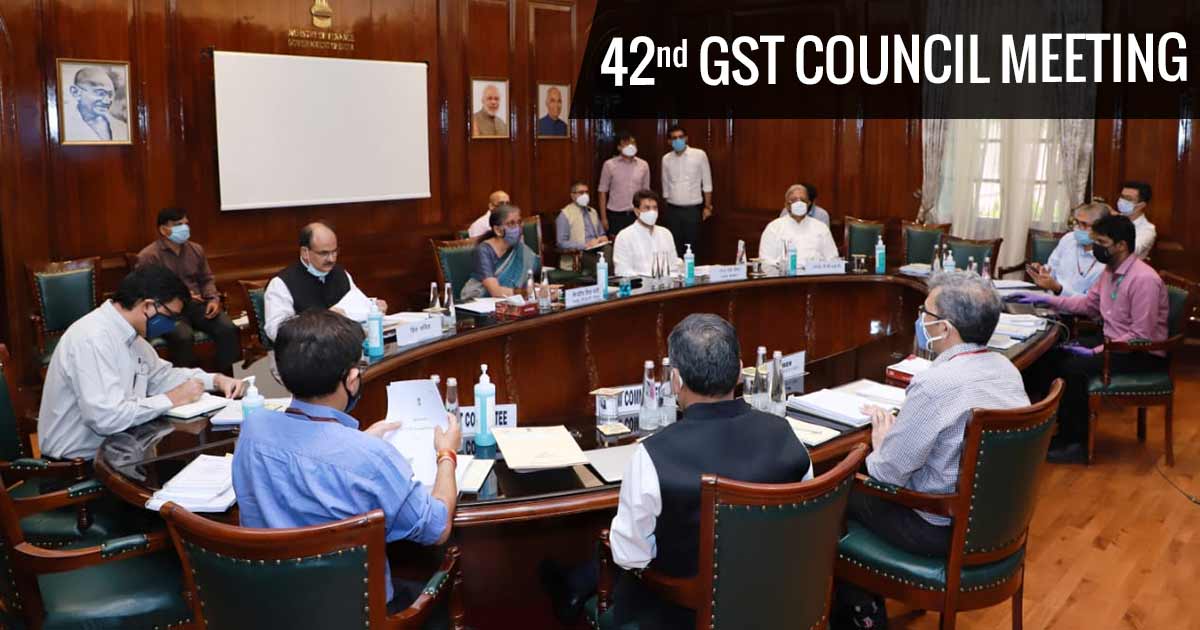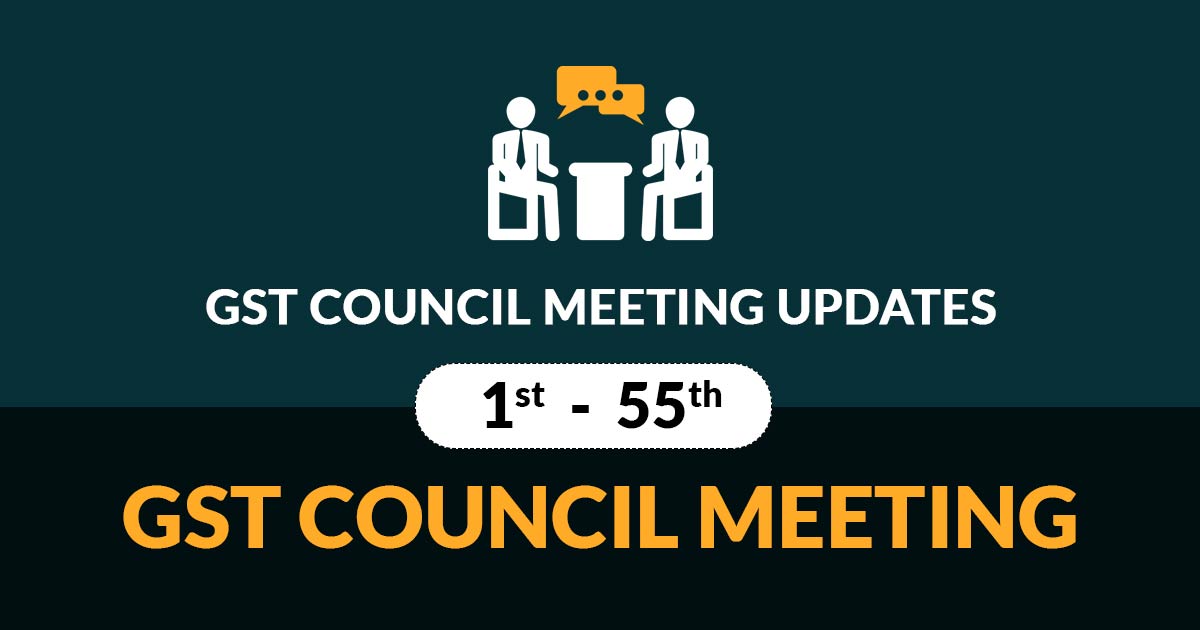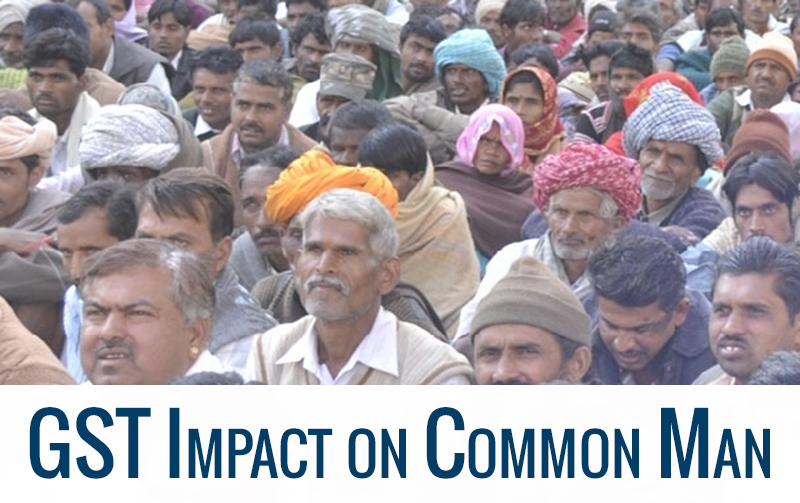The 42nd GST Council meeting finally took place in New Delhi on 5th October 2020. The meeting chaired the finance minister Nirmala sitharaman and the Minister of State (MoS) for Finance Anurag Thakur along with finance minister of all the states.

The 42 GST council meeting has taken some major decision based on the GSTR 1 and 3B quarterly filing. Also, the meeting took concern on the revenue compensation and has said that it will announce decision on the upcoming 12th October on this issue. Other issues such as refund, HSN and facilities on the portal were stated.
However, the main focus of the 42nd GST Council meeting was not very clear but members had taken several GST return and compensation related decisions.
All Updates and Hightlights of the 42nd GST Council Meeting
- GSTR1 and GSTR3B which is to be filed quarterly by the taxpayer whose turnover is less than Rs 5 crores from 1st January 2021, although challan is the medium by which payment is to be made.
- The facility of only upload outer supply of invoices will be given for the assessee for filing the quarterly returns as mentioned above.
- The assessee whose average turnover of higher than Rs. 5 Crores, HSN code needs to be written at a 6-digit level while HSN code to be mentioned at a 4-digit level for those whose average turnover is less than Rs. 5 Crores executing B2B supplies.
- Moreover, 8 digits are required to be mentioned for classes of supplies.
- From 1st January 2021, a refund will be given to those whose bank account validate with PAN and Aadhar. However, the application for refund can be signed via OTP of Aadar verification.
- Satellite launch services are to be released to support start-ups building satellites.
- On 12th October 2020, another meeting will be ruled out for the consideration to states with the shortfall of revenue to reach on a decision.
- The centre can acknowledge developing a GoM rather that a council of administrators on the subject of compensation cess to address the extension of the cess levy, CNBC TV18 as taken from cited sources.
- The state Punjab is asking to borrow from the centre they told that collection of tax is enhancing with monthly compensation of Rs 7000 crore but from the source, there is no requirement for the compensation shortfall of more than Rs 60,000 crore.
Download 42nd GST Council Meeting Press Release
Expectation of 42th GST Council Meeting
- The GST council’s 42nd meeting which was going to be conducted on September 19 is now postponed to the 1st week of October. The postponement comes to the surface in between the ongoing rift between the center and the states regarding the matter of delayed compensation.
The ministry also refused to borrow from the Center as suggested by some states, In this particular matter source said that Under the GST Act, the compensation cess is a tax under the ownership of the states and Article 292 of the Constitution. The Center can borrow on its own taxes and protection of resources which is the Consolidated Fund of India. The Ministry said that “It cannot borrow against the tax which it does not own”. In addition, it said that any borrowing by the Center would squeeze out the resources required for private professionals and it will also raise rates on government papers which actually is a benchmark in the market.
The ministry estimated that there will be a compensation requirement of Rs 3 trillion for the states and the compensation cess for the current financial year will be around Rs 65,000 crore, thus there is a difference of Rs 2.35 trillion. Of this difference, Rs 97,000 crore is due to the GST structure and the rest is due to the lockdown imposed to prevent the spread of the Covid-19 epidemic.
A finance ministry source said that “It has never been the stand of Union finance minister (Nirmala Sitharaman) that the loss of revenue due to Covid-19 would not be compensated. The Central government has, time and again, committed that the entitlement of the States would always be for full compensation,” He also added that the entire compensation sum on account of the shortfall would be paid and honoured.
In the last GST council meeting 
Now if states decide to borrow the entire Rs 2.35 trillion shortfalls then they have to bear the interest burden. And in the other option, the extension of cess will only be used to pay the principal amount, not the interest.
Additionally in the first case borrowing under the special window will not be considered as the debt of stats but in the second option amount up to Rs 97000 crore will be not treated as debt. The states were given time till Tuesday to send their feedback, and as per updates, opposition ruled states accused the Centre of reneging on their promise whereas some BJP-ruled states such as Bihar and Karnataka opted for the first option.
Read Also: Goods and Services Tax Impact on Common Man 
Sources in the ministry said that borrowing to meet the entire shortfall can hurt the private sector very badly as they are still recovering from the losses and current financial slowdown situation. Some recommended transferring the compensation cess to the Compensation Fund and release it for States and a few others are recommending the centre to borrow the funds.
However, one source who knows the matter has responded in this matter that “It is unarguable that since rates on Central government securities work as one of the benchmarks for market rates, any additional borrowings by the Centre would have a higher impact on the market rates than that by States. If the benchmark rates increase on account of borrowing by the Center, the states too will get impacted because it will increase their cost of borrowing”.
Therefore, some top sources believe that, in the current scenario, raising additional resources to meet the gap may be a safer option for states due to the unavailability of compensation. One top source added that “Since the repayment will come from the compensation cess, there is no reason why the rates would be different from each State. In fact, the debt window could be so packaged that it is State independent altogether”.